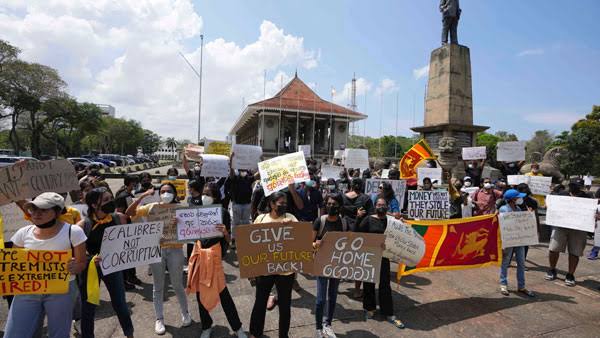China Planning to take ruin Nepal through Economic blackmail, just as it did to Sri Lanka

China had snared Nepal govt by painting a rosy picture of its Belt and Road Initiative, which had had been rejected outright by India. Then in May 2017, the government of Nepal and China signed a Memorandum of Understanding (MoU) on China’s BRI. However, neither Nepal nor China made the document public in all these five years.
These BRI projects even after so many years of signing the MoU are nowhere to be seen on the horizon and in a key development. A copy of the MoU has fully exposed China and its attempts to dominate Nepal’s economy with its currency and free trade provisions.
Perusal of the copy of the Memorandum of Understanding (MoU) signed between China and Nepal on Beijing’s ambitious Belt and Road Initiatives (BRI) projects reveals how China seeks economic hegemony in Nepal through these projects, local media reported.
As per the analysis of the contents of the MoU by Nepal’s local media outlet, China, through its BRI agreement, has attempted to impose its economic hegemony, conditions, and vested interest in Nepal in the name of Free Trade Connectivity.
The MoU obtained revealed that the document signed by both Nepal and China on BRI is a clear gesture on the part of China that it is not only trying to dominate and capture Nepal’s economy and to use its currency in Nepal, but it is also trying to sell its goods through zero customs.
In the document, China’s endeavour to impose its monopoly in Nepal in the name of “promoting cooperation on mutually beneficial areas” under the principles of BRI, looks evident.
Experts have expressed concerns over Nepal not able to make this document public. Political analyst Saroj Mishra has serious doubts that Nepal could be under immense pressure from China to not make the document public.
“Until and unless it is a very sensitive and security-related document, every Nepali citizen has the right to exercise the right to information,” Mishra said, adding, “If so, why is the government reluctant to provide the information?” He also raised concerns about what is barring the government from making it public.
China, in the MoU, has imposed its clause saying that both the sides would “strengthen cooperation for connectivity by enhancing cooperation on transit transport, logistic systems, transport network security and related infrastructures development through joint studying and promoting cross border infrastructure projects, including railway, road, civil aviation, power grid, information, and communication.”
Moreover, according to the document, the MoU shall be automatically renewed for another three years thereafter unless and until terminated by either side by giving written notice at least three months in advance to the other side prior to the expiration of the present MoU.
Even though while signing the MoU in 2017, it was stated that the MoU shall enter into effect on the date of signing and shall remain valid for three years. However, not a single project has taken off.
“This is a traditional and conversationalist approach on the part of Nepal and China for not making public the BRI document,” says Taranath Dahal, a senior journalist and Chairman of Freedom Forum, an anti-corruption non-government organization.
“Since there is no transparency, the question of accountability pops up,” he said in a conversation with Khabarhub.
According to the MoU, the two sides shall modify and supplement the MOU, when necessary, and any agreed revision in writing shall be considered an integral part of this MOU. The MoU also mentions that either side intends to terminate this MOU shall give written notice to the other side through a diplomatic channel at least three months prior to the expiration of this MOU.




